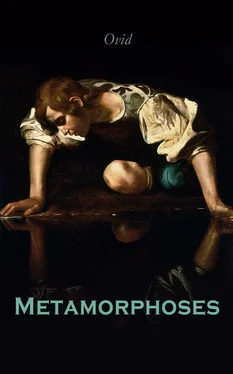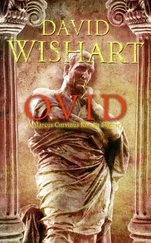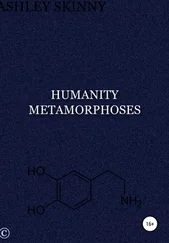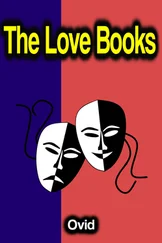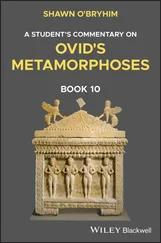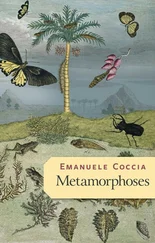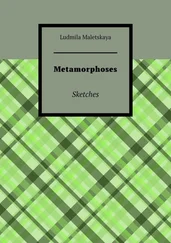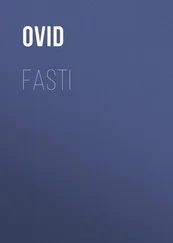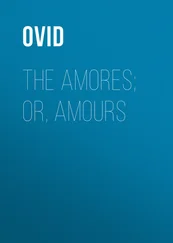Ovid - Metamorphoses
Здесь есть возможность читать онлайн «Ovid - Metamorphoses» — ознакомительный отрывок электронной книги совершенно бесплатно, а после прочтения отрывка купить полную версию. В некоторых случаях можно слушать аудио, скачать через торрент в формате fb2 и присутствует краткое содержание. Жанр: unrecognised, на английском языке. Описание произведения, (предисловие) а так же отзывы посетителей доступны на портале библиотеки ЛибКат.
- Название:Metamorphoses
- Автор:
- Жанр:
- Год:неизвестен
- ISBN:нет данных
- Рейтинг книги:3 / 5. Голосов: 1
-
Избранное:Добавить в избранное
- Отзывы:
-
Ваша оценка:
- 60
- 1
- 2
- 3
- 4
- 5
Metamorphoses: краткое содержание, описание и аннотация
Предлагаем к чтению аннотацию, описание, краткое содержание или предисловие (зависит от того, что написал сам автор книги «Metamorphoses»). Если вы не нашли необходимую информацию о книге — напишите в комментариях, мы постараемся отыскать её.
Metamorphoses — читать онлайн ознакомительный отрывок
Ниже представлен текст книги, разбитый по страницам. Система сохранения места последней прочитанной страницы, позволяет с удобством читать онлайн бесплатно книгу «Metamorphoses», без необходимости каждый раз заново искать на чём Вы остановились. Поставьте закладку, и сможете в любой момент перейти на страницу, на которой закончили чтение.
Интервал:
Закладка:
Thus he said, and, with his mind but ill at ease, he returned to the same reflection, and disturbed the water with his tears; and the form was rendered defaced by the moving of the stream; when he saw it beginning to disappear, he cried aloud, “Whither dost thou fly? Stay, I beseech thee! and do not in thy cruelty abandon thy lover; let it be allowed me to behold that which I may not touch, and to give nourishment to my wretched frenzy.” And, while he was grieving, he tore his garment from the upper border, and beat his naked breast with his palms, white as marble. His breast, when struck, received a little redness, no otherwise than as apples are wont, which are partly white and partly red; or as a grape, not yet ripe, in the parti-colored clusters, is wont to assume a purple tint. Soon as he beheld this again in the water, when clear, he could not endure it any longer; but, as yellow wax with the fire, or the hoar frost of the morning, is wont to waste away with the warmth of the sun, so he, consumed by love, pined away, and wasted by degrees with a hidden flame. And now, no longer was his complexion of white mixed with red; neither his vigor nor his strength, nor the points which had charmed when seen so lately, nor even his body, which formerly Echo had been in love with, now remained. Yet, when she saw these things, although angry, and mindful of his usage of her , she was grieved, and, as often as the unhappy youth said, “Alas!” she repeated, “Alas!” with re-echoing voice; and when he struck his arms with his hands, she, too, returned the like sound of a blow.
His last accents, as he looked into the water, as usual, were these: “Ah, youth, beloved in vain!” and the spot returned just as many words; and after he had said, “Farewell!” Echo, too, said, “Farewell!” He laid down his wearied head upon the green grass, when night closed the eyes that admired the beauty of their master; and even then, after he had been received into the infernal abodes, he used to look at himself in the Stygian waters. His Naiad sisters lamented him, and laid their hair, 77cut off, over their brother; the Dryads, too, lamented him, and Echo resounded to their lamentations. And now they were preparing the funeral pile, and the shaken torches, and the bier. The body was nowhere to be found . Instead of his body, they found a yellow flower, with white leaves encompassing it in the middle.
EXPLANATION.
If this story is based upon any historical facts, they are entirely lost to us; as all we learn from history concerning Narcissus, is the fact that he was a Thespian by birth. The Fable seems rather to be intended as a useful moral lesson, disclosing the fatal effects of self-love. His pursuit, too, of his own image, ever retiring from his embrace, strongly resembles the little reality that exists in many of those pleasures which mankind so eagerly pursue.
Pausanias, in his Bœotica, somewhat varies the story. He tells us that Narcissus having lost his sister, whom he tenderly loved, and who resembled him very much, and was his constant companion in the chase, thought, on seeing himself one day in a fountain, that it was the shade of his lost sister, and, thereupon, pined away and died of grief. According to him, the fountain was near a village called Donacon, in the country of the Thespians. Pausanias regards the account of his change into the flower which bears his name as a mere fiction, since Pamphus says that Proserpina, when carried away, long before the time of Narcissus, gathered that flower in the fields of Enna; and that the same flower was sacred to her. Persons sacrificing to the Furies, or Eumenides, used to wear chaplets made of the Narcissus, because that flower commonly grew about graves and sepulchres.
Tiresias, who predicted the untoward fate of Narcissus, was, as we are informed by Apollodorus, the son of Evenus and Chariclo, and was the most renowned soothsayer of his time. He lost his life by drinking of the fountain of Telphusa when he was overheated; or, as some suppose, through the unwholesome quality of the water. As he lived to a great age, and became blind towards the end of his life, the story, which Ovid mentions, was invented respecting him. Another version of it was, that he lost his sight, by reason of his having seen Minerva while bathing. This story was very probably based either upon the fact that he had composed a Treatise upon the Animal Functions of the Sexes, or that he had promulgated the doctrine that the stars had not only souls (a common opinion in those times), but also that they were of different sexes. He is supposed to have lived about 1200 years before the Christian era.
FABLE VIII.
Pentheus ridicules the predictions of Tiresias; and not only forbids his people to worship Bacchus, who had just entered Greece in triumph, but even commands them to capture him, and to bring him into his presence. Under the form of Acœtes, one of his companions, Bacchus suffers that indignity, and relates to Pentheus the wonders which the God had wrought. The recital enrages Pentheus still more, who thereupon goes to Mount Cithæron, to disturb the orgies then celebrating there; on which his own mother and the other Bacchantes tear him to pieces.
This thing, when known, brought deserved fame to the prophet through the cities of Achaia; 78and great was the reputation of the soothsayer. Yet Pentheus, 79the son of Echion, a contemner of the Gods above, alone, of all men, despises him, and derides the predicting words of the old man, and upbraids him with his darkened state, and the misfortune of having lost his sight. He, shaking his temples, white with hoary hair, says: “How fortunate wouldst thou be, if thou as well couldst become deprived of this light, that thou mightst not behold the rites of Bacchus. For soon the day will come, and even now I predict that it is not far off, when the new God Liber, the son of Semele, shall come hither. Unless thou shalt vouchsafe him the honor of a temple, thou shalt be scattered, torn in pieces, in a thousand places, and with thy blood thou shalt pollute both the woods, and thy mother and the sisters of thy mother. These things will come to pass; for thou wilt not vouchsafe honor to the Divinity; and thou wilt complain that under this darkness I have seen too much.”
The son of Echion drives him away as he says such things as these. Confirmation follows his words, and the predictions of the prophet are fulfilled. Liber comes, and the fields resound with festive howlings. The crowd runs out; both matrons and new-married women mixed with the men, both high and low, are borne along to the celebration of rites till then unknown. “What madness,” says Pentheus, “has confounded your minds, O ye warlike men, 80descendants of the Dragon? Can brass knocked against brass prevail so much with you? And the pipe with the bending horn, and these magical delusions? And shall the yells of women, and madness produced by wine, and troops of effeminate wretches , and empty tambourines 81prevail over you, whom neither the warrior’s sword nor the trumpet could affright, nor troops with weapons prepared for fight ? Am I to wonder at you, old men, who, carried over distant seas, have fixed in these abodes a new Tyre, and your banished household Gods, but who now allow them to be taken without a struggle? Or you, of more vigorous age and nearer to my own, ye youths; whom it was befitting to be brandishing arms, and not the thyrsus, 82and to be covered with helmets, not green leaves? Do be mindful, I entreat you, of what race you are sprung, and assume the courage of that dragon, who though but one, destroyed many. He died for his springs and his stream; but do you conquer for your own fame. He put the valiant to death; do you expel the feeble foe , and regain your country’s honor. If the fates forbid Thebes to stand long, I wish that engines of war 83and men should demolish the walls, and that fire and sword should resound. Then should we be wretched without any fault of our own, and our fate were to be lamented, but not concealed, and our tears would be free from shame. But now Thebes will be taken by an unarmed boy, whom neither wars delight, nor weapons, nor the employment of horses, but hair wet with myrrh, and effeminate chaplets, and purple, and gold interwoven with embroidered garments; whom I, indeed, (do you only stand aside) will presently compel to own that his father is assumed, and that his sacred rites are fictitious. Has Acrisius 84courage enough to despise the vain Deity, and to shut the gates of Argos against his approach; and shall this stranger affright Pentheus with all Thebes? Go quickly, (this order he gives to his servants), go, and bring hither in chains the ringleader. Let there be no slothful delay in executing my commands.”
Читать дальшеИнтервал:
Закладка:
Похожие книги на «Metamorphoses»
Представляем Вашему вниманию похожие книги на «Metamorphoses» списком для выбора. Мы отобрали схожую по названию и смыслу литературу в надежде предоставить читателям больше вариантов отыскать новые, интересные, ещё непрочитанные произведения.
Обсуждение, отзывы о книге «Metamorphoses» и просто собственные мнения читателей. Оставьте ваши комментарии, напишите, что Вы думаете о произведении, его смысле или главных героях. Укажите что конкретно понравилось, а что нет, и почему Вы так считаете.
